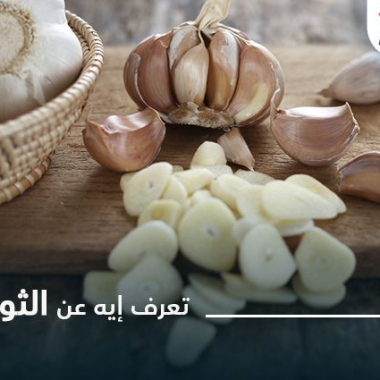الزنجبيل والضغط
الزنجبيل .. نبات ينمو في المناطق الحارة ويتميز بطعمه اللاذع والحار وينتشر استخدامه في قائمة مشروباتنا الساخنة، بل وكذلك في قائمة التوابل الخاصة بتحضير الطعام وخاصة في طهي وتتبيل أنواع اللحوم المختلفة.

وقد ذاعت فوائد الجنزبيل بين العديد من الناس، منها علاقته بالوزن ورفع معدلات حرق الدهون، ومنها تأثيره على القلب والكولسترول ومجابهة السرطان كمضاد للأكسدة، والحد من الإصابة بمرض الزهايمر، وكذلك المساعدة في تحسين وظائف الجهاز الهضمي وعلاج للغازات والانتفاخات وسوء الهضم.
أما عن علاقة الجنزبيل والضغط و كذلك السكري فهذا ما سنتناوله في هذا المقال..
الزنجبيل والضغط:
هل تناول الجنزبيل في صورة مشروب دافئ أو حتى كبهار في الطعام له تأثير على ضغط الدم؟
في واقع الأمر فإن للزنجبيل والضغط علاقة بالفعل كما تشير بعض الدراسات والأبحاث التي أُجريت على الحيوانات عن علاقة الزنجبيل والضغط، حيث أن تناول الزنجبيل يعمل على خفض ضغط الدم.
فلالجنزبيل تأثير باسط للأوعية الدموية مما يقلل من ضغط الدم. لكن علاقة الزنجبيل و الضغط لا تقف عند هذا الحد، فإن الجنزبيل يعمل على غلق قنوات الكالسيوم الذي تحتاجه الأوعية الدموية وكذلك عضلات القلب للانقباض مما يقلل من احتباس الماء في الجسم.
من الجدير بالذكر أن علاقة الزنجبيل و الضغط ليس لها تأثير كبير أو قوي بالدرجة التي تسمح باستخدام الجنزبيل كعلاج فعال لارتفاع ضغط الدم، حيث أن هذا الانخفاض في الضغط بتأثير تناول الجنزبيل يكون طفيف ومحدود.
الزنجبيل والضغط المنخفض:
كما أسلفنا في الفقرة السابقة، فإن تأثير الزنجبيل كخافض للضغط ليس بالقوة التي تجعله علاجاٌ فعالا في حالات ارتفاع ضغط الدم، يبدو أن تلك العلاقة بين الزنجبيل والضغط تظهر أعراضها بوضوح أحياناً على الأشخاص شديدي النحافة ومن يعانون من انخفاض الضغط المزمن، فهؤلاء الأشخاص عند تناولهم للزنجبيل تبدو عليهم أعراض انخفاض ضغط الدم من دوخة وغثيان.
الجنزبيل والضغط المرتفع:
الجنزبيلبالرغم من أن علاقة الجنزبيل والضغط هي علاقة خافضة للضغط، إلا أنه بعض الحالات قد سجلت ارتفاعا في ضغط الدم بعد تناول الزنجبيل!
ولكن للعلم رأي آخر، فتأثير الجنزبيل الكيميائي على ضغط الدم هو تأثير خافض ولا يمكن أن يسبب ارتفاع في ضغط الدم، أما التفسير العلمي لتلك الحالات فهو كما يلي:
غالباً ما تظهر أعراض الارتفاع في ضغط الدم إثر تناول الزنجبيل على الأشخاص الذين يعانون من تذبذب ضغط الدم أو عدم انتظامه. وفي أغلب الأحيان يُقبل الناس على تناول الجنزبيل كمشروب دافئ في فصل الشتاء، ومن المعروف أن ضغط الدم يرتفع في فصل الشتاء بسبب برودة الجو، فعندما تصادف أن تجتمع تلك العوامل الثلاث وهي تناول الجنزبيل والضغط الغير منتظم و برودة الجو، يظهر ذلك الارتفاع في ضغط الدم وكأنه تأثيرٌ كيميائي للزنجبيل!
الزنجبيل المطحون والضغط:
في الحقيقة أننا اعتدنا على تناول الزنجبيل المجفف والمطحون، ولكن منذ سنوات قليلة بدأ ينتشر في الأسواق الجنزبيل الطازج، وهنا بدأت تتبادر إلى الأذهان تساؤلات حول الفرق بينهما.
وللإجابة عن هذا السؤال علينا أن نعي أن كلا النوعين من الجنزبيل يحتوي على نفس المكونات ولكن مع اختلاف النِّسب. فالنوع المطحون سابق التعرض لعملية التجفيف قد فقد جزءً ليس بالقليل من مكوناته وبخاصة ما يحتويه من زيوت طيارة أثناء عملية التجفيف، مما يجعله أقل فعالية من الزنجبيل الطازج. فيما عدا تلك المادة المسئولة عن الطعم الحار في الجنزبيل، وهي مادة الجنجرول، تلك المادة عندما تتعرض للحرارة أثناء عملية التجفيف تتحول إلى مادة أشد حرارة وهي مادة الشوغول، مما يجعل الجنزبيل المجفف أكثر حرارة من الطازج!
أما عن الاختلاف بين المجفف والطازج في العلاقة بين الجنزبيل والضغط ففي الغالب لا فرق في التأثير، فربما كان الفرق في كمية الزنجبيل الذي يتم تناوله.
فوائد الجنزبيل لمرضى السكري و الضغط:
مرض السكري مرضٌ مزمن شائع بكثرة في عصرنا الحالي بسبب سوء العادات الغذائية والحياتية التي آل إليها نمط حياتنا. وهو مرض يؤثر على إنتاج هرمون الأنسولين أو استجابة خلايا الجسم له، مما يؤثر بدوره على معدلات الجلوكوز في الجسم.
لن يقتصر الحديث في مقالنا هذا على العلاقة بين الزنجبيل والضغط، فللزنجبيل علاقة بمرض السكري أيضاً. وربما كانت علاقةالجنزبيل والسكري أقوى من علاقة الجنزبيل والضغط!
فهذا النبات الجذري ذو الرائحة العطرة له قدرة على مواجهة ارتفاع معدلات السكر في الجسم عن طريق تحفيز استقبال السكر وتعزيز امتصاصه في الخلايا الدهنية و خلايا العضلات، كما أنه يعمل على تعزيز خلايا البنكرياس وزيادة نشاطها. ومن تأثير الجنزبيل أيضاً أنه ينظم مستقبلات الأنسولين في خلايا الجسم.
وحماية خلايا الكُلى من التلف بسبب ارتفاع نسبة الجلوكوز في الجسم، ويحمي كذلك شبكية العين والأوعية الدموية فيها من التلف بسبب مرض السكري. كما يرفع الجنزبيل من معدلات امتصاص الجلوكوز داخل خلايا العضلات وبالتالي ضبط معدلات السكر في الدم. أما على المدى البعيد فإن الجنزبيل له تأثير طويل المدى على خفض مستوى السكر التراكمي في الجسم والذي يدل على مستوى السكر خلال ثلاث شهور تقريباً.
أما عن تأثير الجنزبيل على عضلات القلب، قلا يقتصر على علاقة الزنجبيل والضغط بل يمتد إلى حماية أوعية القلب من التلف بسبب مرض السكري، وخاصة أن 65 % من وفيات مرضى السكري تكون بسبب اعتلال وتشوُّه الأوعية الدموية القلبية. كما يساعد الزنجبيل على تقليل الألم الناتج عن التهاب الأعصاب بسبب مرض السكري، حتى أنه بات من بين أهم الأعشاب الطبية المستخدمة في الوقاية من الإصابة بمرض السكري.
إلا أنه ينصح مريض السكري بعدم تجاوز الكمية المُتناولة منه عن 4 جرامات يومياً حتى لا يصاب بهبوط حاد في السكر.
أضرار الزنجبيل على مرضى الضغط والسكري:
ينصح دائما بعدم المبالغة في تناول الجنزبيل لمرضى السكري والضغط، حيث أن الإفراط في تناوله قد يؤدي إلى خفض معدل احتباس الماء في الجسم. وقد يتداخل تأثيره مع تأثير أدوية السكري فيزيد من انخفاض معدل السكر في الدم مما يعرض مريض السكري للخطر.
وقد يؤدي أيضاً الإفراط في تناول الزنجبيل بالتزامن مع تناول أدوية لعلاج الضغط المرتفع إلى ظهور العلاقة بين الزنجبيل والضغط المنخفض بشكل قوي، حيث يعمل كلا من الجنزبيل وأدوية علاج الضغط على خفض الضغط مما قد يؤدي لتعرض المريض لهبوط حاد في ضغط الدم.
من أضرار الإفراط في تناول الجنزبيل كذلك تهيج الفم و الطفح الجلدي وحرقة المعدة والإسهال. كما أنه قد يتداخل مفعوله مع الأدوية المميعة للدم التي تزيد من سيولة الدم والتي تستخدم لتقليل خطر الإصابة بالجلطات كمضاعفات لمرض السكري، ومن الممكن أن يؤدي تناول الزنجبيل بالتزامن مع تناول تلك الأدوية إلى زيادة تأثيرها مما يزيد من خطر الإصابة بالنزيف أو حدوث كدمات.
وبشكل عام فإن تناول الجنزبيل يعد آمناً طالما كان ذلك في المعدلات الصحية دون إفراط.
طريقة تحضير الزنجبيل كمشروب:
يتم تحضيره بأخذ ملعقة صغيرة من الزنجبيل الطازج المفروم أو المبروش ويضاف لها كوباً من الماء الساخن دون درجة الغليان فلا يُنصح بأن ترتفع درجة حرارة الماء عن 50 درجة مئوية ثم يُغطى ويشرب بعد نصف ساعة.


























